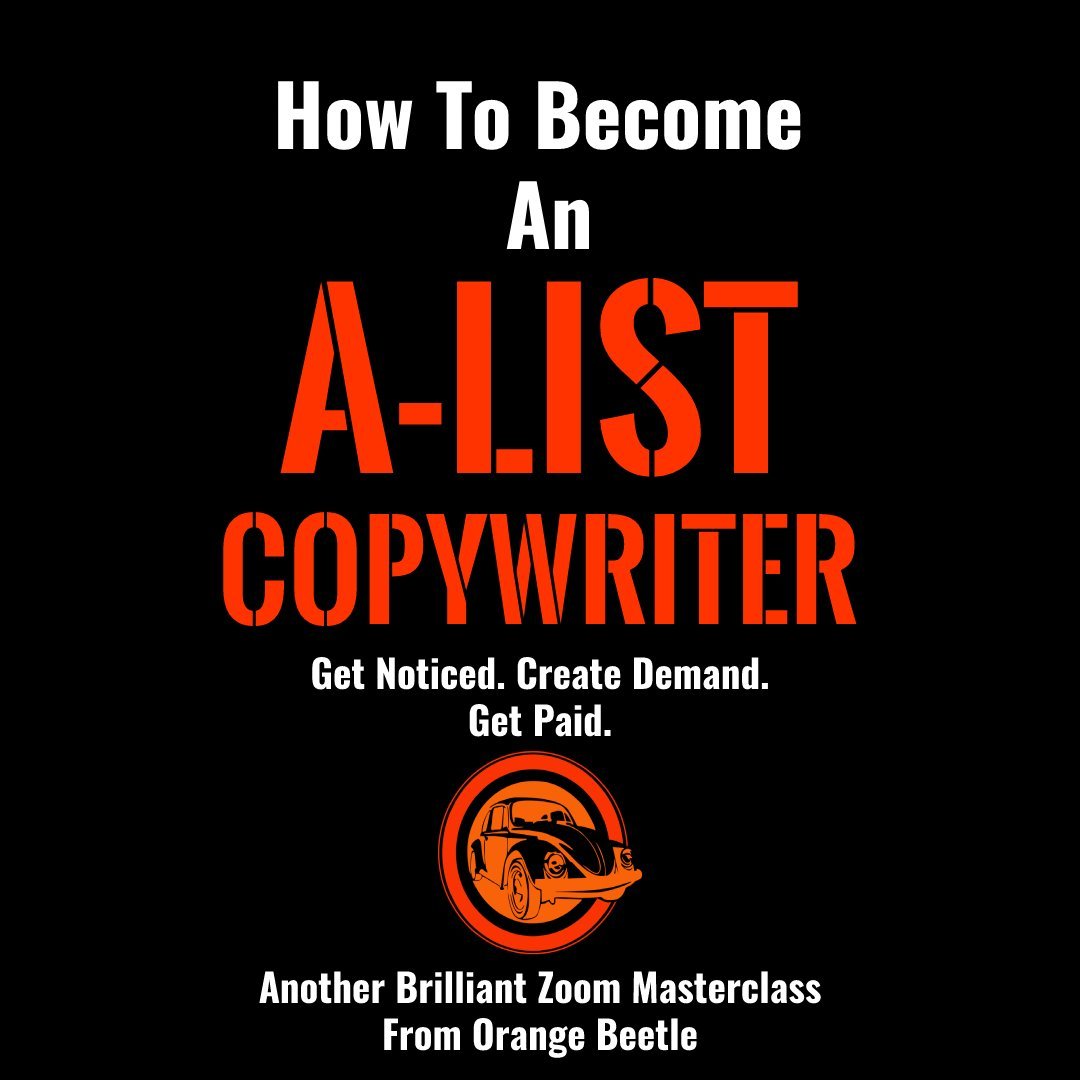I Asked This: Copywriters Vs. A.I What's The Future
Copywriters Vs. A.I - The Future?
I have written a few articles on copywriting and A.I. now. Yet, there are appears to be a huge drive towards fear online about A.I. snapping away the future of copywriters.
I will say right at the start the future of copywriting has never been so exciting. We’ll come back to that in a moment.
First, I decided to ask A.I. these two questions.
Copywriters Vs. A.I.?
The Future of Copywriting?
The following answers are from A.I. itself. See what you think.
I will add my response at the end.
MY QUESTION TO A.I.
Copywriters Vs. A.I. - The Difference?
A.I. REPLY
Copywriters and artificial intelligence (A.I.) are two different approaches to creating written content. Here are some key differences between copywriters and A.I. when it comes to content creation:
Human Creativity vs. Algorithmic Logic:
Copywriters are human writers who use their creativity, language skills, and understanding of marketing or communication goals to craft content. They can adapt their writing style, tone, and message to suit a particular audience or purpose.
A.I. relies on algorithms and data to generate content. While it can produce text quickly and efficiently, it lacks true creativity, originality, and the ability to understand the nuances of human communication fully.
Quality and Originality:
Copywriters are capable of creating highly original and unique content. They can come up with fresh ideas and tailor their writing to make it engaging and compelling.
A.I. can generate content rapidly, but it may lack the ability to create truly original ideas or narratives. It often relies on patterns and data from existing content, which can lead to some level of repetitiveness or lack of uniqueness.
Customization and Adaptation:
Copywriters can adjust their writing to the specific needs of a project, audience, or brand. They can capture the brand's voice and adapt their style accordingly.
A.I. can be programmed to follow specific guidelines, but it may struggle to capture the essence of a brand or fully understand the subtleties of a unique voice or message.
Human Touch and Emotion:
Copywriters can infuse their writing with human emotions and empathy, making the content relatable and emotionally resonant with the audience.
A.I. lacks emotional understanding and the ability to connect with readers on a personal level. It may produce content that seems mechanical or devoid of genuine emotion.
Subject Matter Expertise:
Copywriters can specialize in various subjects and industries, allowing them to bring domain-specific knowledge and expertise to their writing.
A.I. can generate content on a wide range of topics, but its understanding is based on data and algorithms, which may lack the depth of knowledge and insight that a subject matter expert can provide.
Editing and Proofreading:
Copywriters can review, edit, and refine their work to ensure high-quality and error-free content.
A.I. can assist with grammar and spelling checks but may not catch all nuances or context-related errors.
In practice, there are instances where A.I. can be a valuable tool for copywriters, helping them with research, generating drafts, or automating repetitive tasks. However, A.I. is not a replacement for the creative and strategic thinking that skilled human copywriters bring to the table. The ideal approach often involves a combination of both human creativity and A.I. assistance to maximize efficiency and quality in content creation.
ALAN’S COMMENT
THE EDIT: I’ve spent a lot of time playing with A.I. now. Some of the results have been interesting to say the least. One thing you need to be good at with A.I. is editing. The edit will give the copy a voice. The voice is what makes the copy sound like the company, person or product. As of yet most of the copy from A.I. isn’t able to do this yet but the changes are fast.
EMOTION: It is unemotional in it’s response. More of heres the facts written well. But as a copywriter we know that is never enough to drive response.
A.I. has its place and that will grow. It will only make copywriters better if they understand A.I. is not the lazy man’s way to writing.
QUESTION: What Is The future of Copywriting?
A.I. REPLY
The future of copywriting is likely to be influenced by several key trends and developments, many of which were already emerging before my knowledge cutoff date in January 2022. Here are some possible directions for the future of copywriting:
Content Automation: Automation and artificial intelligence are becoming increasingly integrated into the field of copywriting. AI-powered tools can generate content, including product descriptions, social media posts, and even basic articles. Copywriters may need to collaborate with AI systems and use them as productivity-enhancing tools.
Personalization: Personalized marketing and content are gaining importance. Copywriters will need to create content that speaks directly to individual consumers, taking into account their preferences, behaviors, and demographics. This will require a deep understanding of data and analytics.
Voice Search Optimization: With the rise of voice-activated devices and voice search, copywriters will need to adapt their writing for conversational and long-tail keyword phrases. This will impact SEO and content strategies.
Video and Visual Content: Copywriting will expand beyond text to include video scripts, captions, and other visual content. Writing for multimedia formats will be a valuable skill for copywriters.
Storytelling: Storytelling will remain a powerful tool for copywriters. The ability to tell compelling, authentic, and brand-relevant stories will continue to be in high demand.
Ethical and Inclusive Copywriting: Copywriters will need to be increasingly mindful of ethical considerations and inclusivity in their work. Avoiding stereotypes and harmful content and ensuring accessibility for all audiences will be essential.
SEO and Content Strategy: SEO will remain a crucial aspect of copywriting, but the focus may shift more towards quality content and user intent rather than keyword stuffing. Copywriters will need to understand the evolving algorithms and search engine trends.
Collaboration with Visual and UX Designers: Copywriters will need to collaborate closely with visual designers and user experience (UX) professionals to create cohesive and effective content. This includes web content, social media visuals, and other multimedia elements.
Remote Work and Freelancing: The trend of remote work and freelancing in the gig economy is likely to continue. Copywriters may find more opportunities to work independently or as part of distributed teams.
Skill Diversification: Copywriters may need to diversify their skill set to include a broader range of marketing and content creation skills, such as email marketing, social media management, and content strategy.
Niche Specialization: Specializing in a specific industry or niche can be a way for copywriters to stand out. Becoming an expert in a particular field can lead to more targeted and effective content.
Overall, the future of copywriting is expected to be dynamic and adaptable, with copywriters embracing technology, staying updated on marketing trends, and continuously refining their skills to remain relevant in a rapidly evolving landscape. While technology may automate some aspects of copywriting, the creativity and human touch in crafting persuasive and engaging messages will remain highly valuable.
ALAN’S REPLY
I think only A.I. could reply this way. I also think it is an average response and way off track. That highlights the limitations of A.I.
For someone like myself that writes daily, produces daily, creates daily and works with clients daily the future of copywriting has never looked so good.
BUT …
You have to understand a few things as a copywriter.
How the mind and reading habit of the public has changed in 2025.
How the habits of reading and speed of digesting information has changed.
Howe the copy response mechanisms have changed.
How headlines have changed.
How the approach and word meanings have changed.
How the pandemic and lockdown mind changed how we all think.
How copywriting clients want to be chased not do the chasing.
Once we understand those new and critical elements of copywriting we also understand the future has never looked better for copywriters that understand those things.
On copywriting mentor I will be giving you years of experience. I will also be loading you up with what is working right now in the copywriting business.
We will be focused on business building, making money, making it all pay, finding and working with the perfect clients and as ever working on your transition into the exciting new world.
See you on my 20-year old program - Copywriting Mentor

